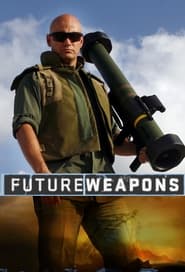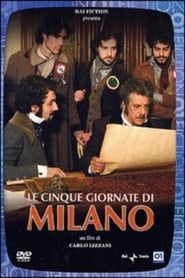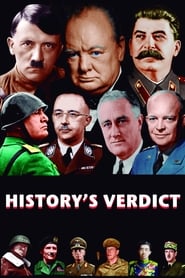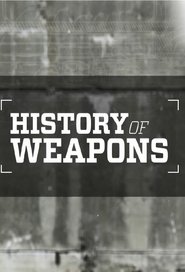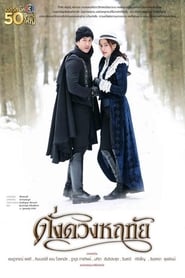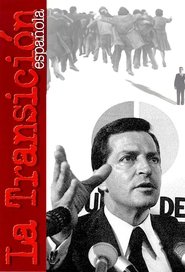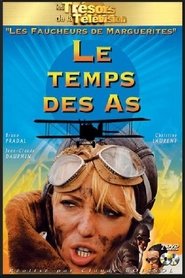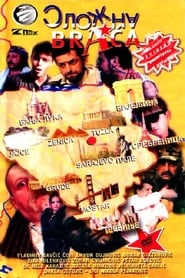Popular War Politics TV Series on Pantaflix - Page 93
-
圣堂风云
2010
圣堂风云
2010
-
The Listening Post
0000
The Listening Post
0000
Listening Post is Al Jazeera English's weekly media review show. It casts a critical eye over not just what gets reported, but how it's reported - covering the coverage of the news & analyzing global events through the prism of the media. -
FutureWeapons
2006
FutureWeapons
2006
star 7Future Weapons, sometimes also written as FutureWeapons and Futureweapons, is a television series that premiered on April 19, 2006 on the Discovery Channel. Host Richard "Mack" Machowicz, a former Navy SEAL, reviews and demonstrates the latest modern weaponry and military technology. The program is currently broadcast on the Discovery Channel and Military Channel. -
Pioneer One
2010
Pioneer One
2010
star 6.3A Cold War relic returns amid fears of terrorism but turns out to be a forgotten Soviet space mission. What it brings back will have implications for the entire world. -
禽兽超人
2013
-
The American Revolution
2014
star 8.3Everyone knows the story of Paul Revere and his famous midnight ride to warn colonial forces of the British approach. But history books don't tell of the man who sent Revere on his mission: Joseph Warren, America's least remembered founding father. Uncover the forgotten history of Warren and stories of other unsung heroes in our fight for independence. -
Le cinque giornate di Milano
2004
In 1847, Milan was ruled by the Austrians, commanded by Marshal Radetzky. The Milanese people were exhausted by the lack of freedom, and when an Italian cardinal was appointed to the Milanese curia, they took to the streets in celebration, with no intention of revolt. But the celebrations were stopped by the Austrians with harsh and cruel repression. -
History's Verdict
2013
History's Verdict
2013
star 6.5A group of history experts from London's King's College has created this documentary series that tries to assess the key political figures of WWII. -
Штурм
2023
-
History of Weapons
2018
-
When Duty Calls
2017
When Duty Calls
2017
Xu Long Bin is a reservist officer who saved Chen Jin Bao's life during a military exercise. Instead of being grateful, Jin Bao blames Long Bin for his damaged car. From then, the duo never see eye to eye. Lu Jun Guang becomes their mediator and the three men eventually became friends. Jun Guang is in love with Shen Yi Xuan, who cannot get over the memory of her dead boyfriend. While Bai Jing Yu, Jun Guang's childhood friend, is always at his side through thick and thin. New recruit Yao Wei Guo dislikes Yang Xian Feng and constantly picks on him. But Xian Feng proves himself to be a kind and compassionate buddy, and they eventually become good friends. Their friendship is tested when they fall in love with the same girl. Long Bin, Jun Guang and Jin Bao are patrolling a restricted military area when they encounter a terrorist attack. Will they be able to put their military skills to good use and stop the terrorist attack? -
The Enchanted Tale
2020
The Enchanted Tale
2020
The story of three kingdoms. Kasit ruled by King Rangsimun is the wealthiest and most powerful but they lack a sea route, for this reason King Rangsimun had planned to politically wed Princess Maneesala of Tanta in order to conveniently use their water route. However if both Kasit and Tanta were to unite that would cause Puntoolat to become isolated and for this reason the three kingdoms have longed lived with suspicion of one another. -
Sankt Urban
1969
Sankt Urban
1969
-
ゲルニカ
2020
ゲルニカ
2020
-
The Howard Years
2008
The Howard Years
2008
The Howard Years was a documentary series about the prime ministership of John Howard produced by the Australian Broadcasting Corporation. It was divided into four one-hour episodes - one episode for each term Howard served as Prime Minister of Australia - and originally broadcast on ABC1 from 17 November to 8 December 2008. -
La transición
1995
-
Le Temps des as
1978
Le Temps des as
1978
The World War I is declared. The french pioneers of aviation are requisitioned, but they try to renew with the spirit of chivalry. -
United Brothers
1996
United Brothers
1996
star 7.5Taking place just after the end of Bosnian War, the series is mostly set in a kafana named Složna braća owned by Halimić brothers and located on a small patch of UN-controlled territory (covering 0.0657 km2) not claimed by any of the three warring sides. Serbs, Bosniaks, and Croats, otherwise very hostile to each other following a ferocious civil war, regularly visit the said kafana in no man's land in order to arrange mutual black market activities (weapons and food trade, oil and cigarette smuggling, etc.). When the word gets around about an important weapons shipment passing through the territory that can supposedly completely change the division of power in the Balkans, the place becomes a lively hub of espionage, deal making, and skulduggery. -
Politics Show
2003
Politics Show
2003
The Politics Show was an hour long BBC One television political programme broadcast in the United Kingdom on Sundays, broadcasting usually at midday. The Politics Show was superseded by Sunday Politics, a weekend version of The Daily Politics, which retains some of the elements of the former show.
 Netflix
Netflix
 Amazon Prime Video
Amazon Prime Video
 Apple iTunes
Apple iTunes
 Apple TV Plus
Apple TV Plus
 Disney Plus
Disney Plus
 Google Play Movies
Google Play Movies
 Paramount Plus
Paramount Plus
 Hulu
Hulu
 HBO Max
HBO Max
 YouTube
YouTube
 fuboTV
fuboTV
 Peacock
Peacock
 Peacock Premium
Peacock Premium
 Amazon Video
Amazon Video
 The Roku Channel
The Roku Channel
 AMC+
AMC+
 Kocowa
Kocowa
 Hoopla
Hoopla
 The CW
The CW
 Vudu
Vudu
 Starz
Starz
 Showtime
Showtime
 PBS
PBS
 Pantaflix
Pantaflix
 FXNow
FXNow
 Tubi TV
Tubi TV
 Kanopy
Kanopy
 Comedy Central
Comedy Central
 Crunchyroll
Crunchyroll
 Microsoft Store
Microsoft Store
 Redbox
Redbox
 Sun Nxt
Sun Nxt
 ABC
ABC
 DIRECTV
DIRECTV
 Crackle
Crackle
 Fandor
Fandor
 Plex
Plex


